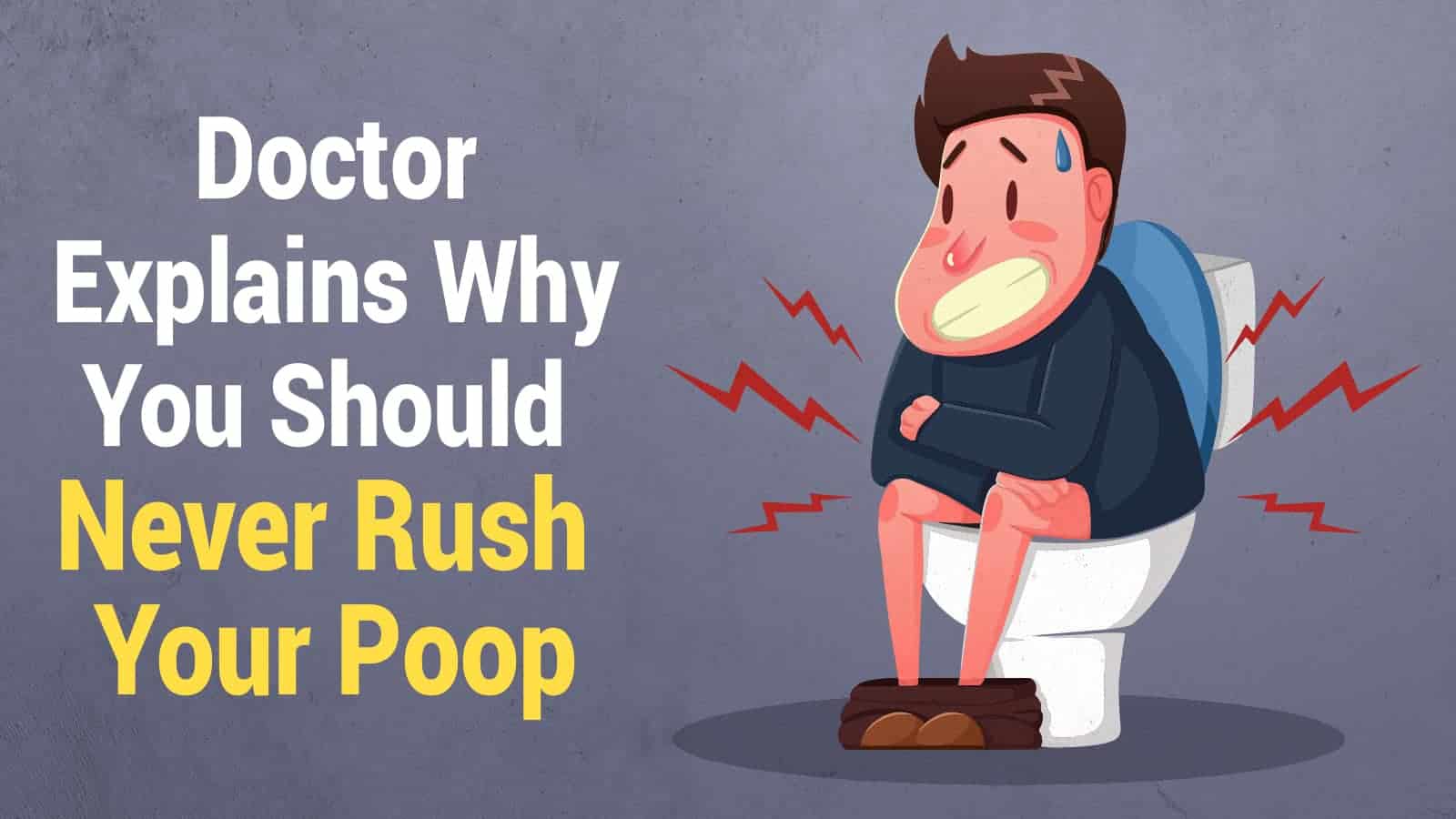Like most people, discussing bowel movements is personal and taboo. However, your stool and how often your bowels move can reveal much about your overall health. You may have concerns about whether you poop too much or not enough.
The Importance of Poop to Your Digestive Health
As off-putting as the subject is to some, your body’s digestive system is fascinating. It starts when you eat food. The food travels from your mouth to your stomach and then intestines, which absorb the nutrients, and then it discards the waste through your colon. If you couldn’t poop, your body would back up with toxins, and you wouldn’t survive.
Phase 1: Your Mouth
When you eat, your teeth grind the food into mush as the tongue mixes it with saliva for easy swallowing. Your tongue pushes the pulverized food down your throat and into your esophagus. While you’re savoring each tasty bite, your esophagus works the food down to your stomach for further digestion.
Phase 2: Your Stomach
According to an article published by the Cleveland Clinic, the size of the stomach is a little different for each person. Your gut is also more prominent when it’s stretched out with a big meal. It’s a powerful organ that mixes strong acid with the food and churns it until it’s almost a liquid.
Phase 3: Your Small Intestines
The liquidized food is ready to be sent into the small intestines for complete digestion. As it works through the complex maze of the intestines, tiny hairs called cilia to absorb nutrients and water. These are passed through your gastrointestinal capillaries into your bloodstream to nourish your entire body.
Phase 4: Your Large Intestine and Final Waste Product
After the small intestines do their work, they send the remaining bulk to your large intestine, also called your bowels. Your colon has the final task of absorbing any remaining nutrients and liquid. All that remains is a semi-solid waste that will be temporarily stored in your lower bowel, called the rectum.
Within about 72 hours or more, nerves in your lower bowels signal your brain that it’s complete and ready to be emptied. You get that all-so-familiar feeling that it’s time to sit alone in the bathroom for a while. Everyone’s had the dreaded experience of getting the urge in public, and no restrooms are available.
An article published by the Mayo Clinic states that most people completely digest a meal within two to five days. Per the article, it depends on the person’s bowel habits and health. For example, your food on Monday will be part of your stool on either Wednesday or Saturday.
What Your Poop Says About Your Health
Bowel habits vary among people, but most folks say it’s a strangely relaxing experience. Suppose you are constipated or have trouble with hard stools; your time on the toilet might be a little longer. If you have other digestion issues that cause diarrhea, your visits may be more frequent.
It’s only human nature to observe your stool quickly before you flush. While it sounds like gross curiosity, your feces can give you clues about what’s going on in your body. Some of these clues could indicate severe health conditions that you must address.
1. Poop Color
Have you ever wondered why most people’s stool is brown? It’s not because all you’ve been digesting is brown food. There are more bacteria in your feces than food waste. However, digestive enzymes and bile give it the typical brown color.
Your feces can be other colors, and each one can indicate something awry in your body. If your food moves through your digestive tract too quickly, the overflow of bile may turn your waste green. If you notice gray stool, you may not have enough bile, indicating a liver problem.
Discovering blood in your stool can be an early warning sign of colorectal cancer. Your feces may be almost black and tar-like because of internal bleeding or bright scarlet if the blood is more in the rectum or anal areas. Unless you’ve been consuming colorful red food or drinks, take this discovery seriously and seek medical attention.
2. Poop Shape
Your large intestine is shaped like a hollow tube so that you can pass your bowels easily. It’s only natural that healthy stools look like small, smooth crescents. If you notice hard, pebble-shaped feces, you may be constipated. Conversely, shapeless and liquified feces indicates diarrhea.
3. Poop Smell
Whether you are royalty or a regular person, everybody’s poop stinks. The bulk waste temporarily stored in your rectum is full of fermenting bacteria, hence the putrid smell. However, especially rotten-smelling feces may signify an intestinal infection or another health issue.
Of course, you shouldn’t over-analyze each trip to the bathroom. Just be aware of any changes that are unusual for you. Listen to your body and know what each system is telling you.
You Should Not Worry About Rushing to Poop
There are no definitive answers to the best time to poop. That’s because everyone’s bowel habits are unique. You know what’s normal for you or when you’re having a problem. It may be fine for your bowels to move once a day, while another person might go two or three times daily.
After all these years, you’re on an automatic bowel schedule. It’s as soon as you awaken in the mornings or any time after you eat. Illness and other external situations may deviate your regularity for a bit, but you’ll usually go back to your routine.
Dr. Jen Gunter, an OB/GYN and pain medicine physician, advised in a Ted Talk that once-a-day pooping is a myth. In fact, she calls it…and we quote…” a load of crap.” So don’t worry–as long as you’re eating a fiber-filled diet and empty your bowels regularly, you should follow your body’s pace.
What Influences Your Bowel Habits?
Internal and external factors can directly influence the frequency and how your bowels move. These factors may be acute or chronic, and they’re normal. You can always seek medical advice if you feel like something isn’t right.
1. Your Diet
It’s helpful that whatever you eat will affect your bowel habits. If you consume a diet loaded with sugar, fat, and preservatives, you’re prone to have frequent bathroom visits. Your bowel habits will be more productive with a healthy diet that’s high in fiber.
2. Your Age
As you get older, your digestive tract slows down a bit with the rest of your body. It’s common for seniors to develop chronic constipation and other bowel issues. Some medications can cause hard stools, also.
3. How Much You Drink
If you want smooth, healthy stools, you need to stay hydrated with plenty of water. Did you know that you can often be dehydrated without knowing it? Freshwater flushes your kidneys and your bowels of waste and other toxic microbes.
4. Your Medical History
If you have gastrointestinal disease or a history of it, it’s bound to affect how you go to the bathroom. Most known are Crohn’s disease, IBS, and ulcerative colitis. These often cause mild to severe symptoms that result in either constipation, diarrhea, or both.
5. Your Activity Level
Did you realize that your activity level can affect activity inside your body? A sedentary lifestyle can cause your bowels to be sluggish, and you’ll often have painful gas, bloating, and constipation. Try to get at least a half-hour each day of exercise to keep your body and your bowel habits in optimal shape.
6. Social Situations
Let’s face it; you are much more comfortable pooping at home than you are at work or in a public restroom. It’s normal to feel self-conscious about such a private but necessary bodily function. Maybe you’re one of the countless people who hold it in and make a beeline to the bathroom when you get home.
7. Your Hormones
Your body creates hormones to help control almost all your body’s systems, including your digestion and waste. If you’re a woman, you may notice that you’re pooping more on the days leading up to your menstrual cycle. It’s the overflow of estrogen and progestogen that keeps your bowels busy.
How Much Poop Is Too Much?
Considering your bowel habits and any possible factors, only you know what’s normal for you. However, sudden bouts of diarrhea can cause you to dehydrate and become malnourished quickly. Such instances are even more severe if you’re a senior or have health problems.
Straining from constipation can cause painful hemorrhoids that itch and bleed. Plus, it can point to a more severe problem such as a bowel obstruction or stomach issue. If your normal becomes abnormal, it’s time to seek medical attention.
Why Shouldn’t You Multitask on the Toilet?
Does your bathroom do double duty as the family library? An article published by Geisinger warns that sitting too long on the toilet can put pressure on your anus and cause hemorrhoids. If you’re a bathroom reader, limit your selection to short stories.
Do you use your time on the porcelain throne to scroll through social media or text? According to an article published by Phys, you’re apt to touch your phone before you wash your hands. According to the report, at least one in six smartphones is contaminated with fecal matter. So keep it out of the bathroom.
Final Thoughts on Why It Is Fine to Poop at Your Own Pace
Your bowel habits are unique, and you know what’s right for you. Practicing a healthy lifestyle that includes nutritious food and exercise may make a difference. It may not change how often you go, but it may make the experience better for you.





















